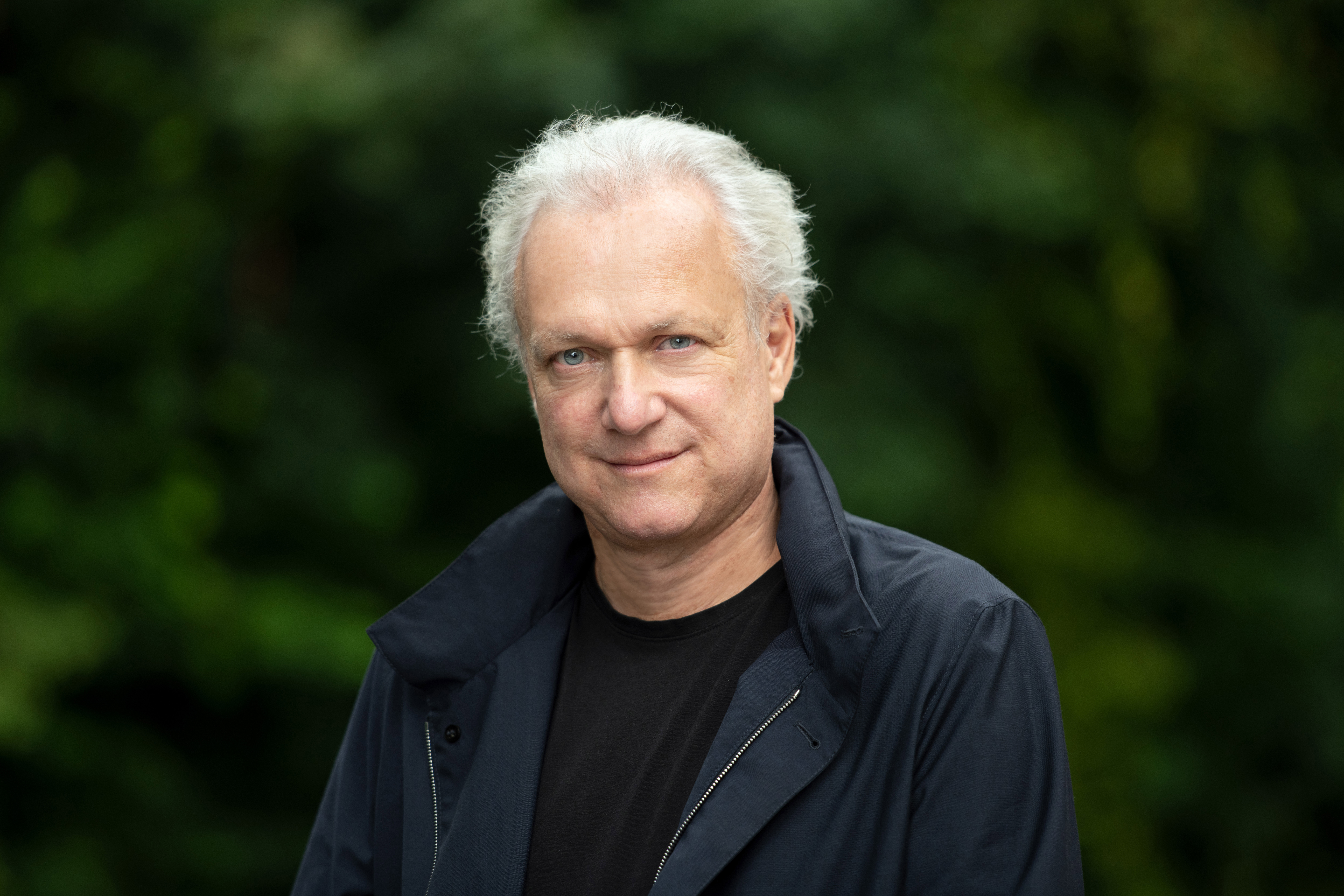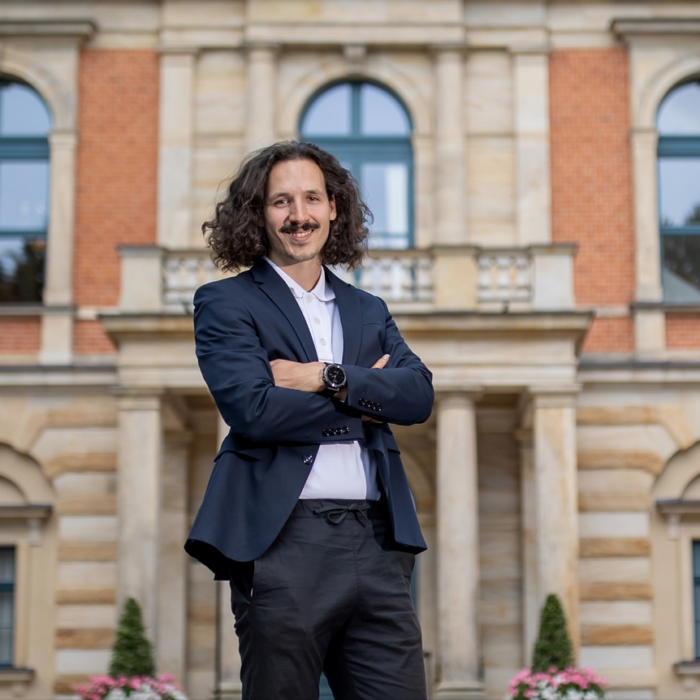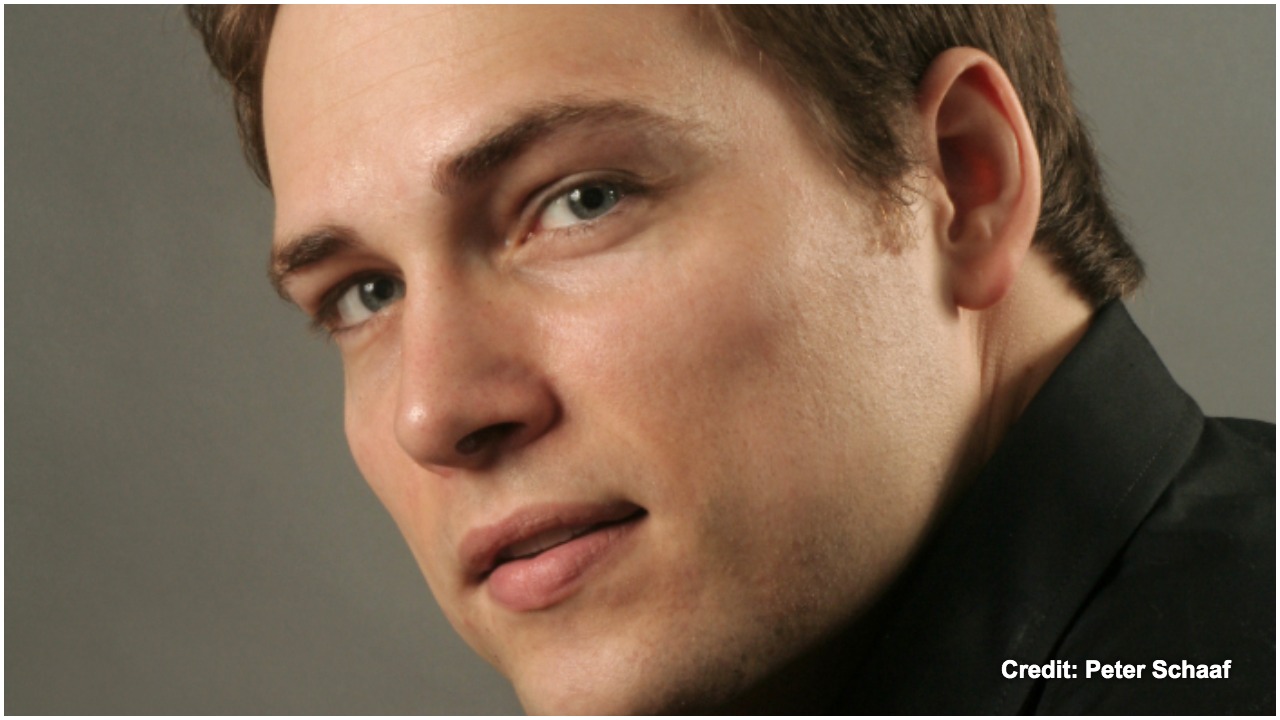
Q & A: Johannes Martin Kränzle on Christof Loy’s New ‘Così fan tutte’ at the Salzburg Festival, Role Preparation, & German Vocal Instruction
By Ona JarmalavičiūtėBefore German baritone, composer, and instrumentalist Johannes Martin Kränzle joined the ranks of singers, he studied violin and directed music theater in Hamburg.
The baritone studied voice with Martin Gründler and began his operatic career at such venues as Theater Dortmund, Staatsoper Hannover, and the ensemble of Oper Frankfurt. Since then, Kränzle has sung at the Metropolitan Opera; the Royal Opera House; Teatro alla Scala; the Bayreuth Festival; Staatsoper Unter den Linden Berlin; Opéra national de Paris; San Francisco Opera; Oper Frankfurt; and Oper Köln, among others.
In previous interviews, Kränzle has stated that the Salzburg Festival was a forming force of his career. His 2009 Festival debut was as Valens in Handel’s “Theodora.” The following year he created the lead role of N. (Nietzsche) in the world premiere of Wolfgang Rihm’s “Dionysos,” a work commissioned by the Festival, Staatsoper Berlin, and De Nederlandse Oper. At this year’s Festival, Kränzle reprised his role as Don Alfonso in Christof Loy’s new production of Mozart/Da Ponte’s “Così fan tutte.”
Kränzle recently told OperaWire about Loy’s unexpected staging, the importance of the Salzburg Festival in his career, and role preparation.
OperaWire: How did you deal with the pressure of having to jump unexpectedly into the role of Don Alfonso in Christof Loy’s new “Così” for the Salzburg Festival?
Johannes Martin Kränzle: I was supposed to be in Bayreuth this summer, but it got canceled. I got used to the idea that I would have a very long period with no work. I got the call in June since I have worked with Loy in this role before. They asked whether I was available for the new project, and, of course, I was. We started rehearsing at the beginning of July with minimalistic decorations and costumes. There were six of us on stage, but the quality was still very high with great character portrayals. There was a lot of pressure regarding health; you had to wear a mask and get tested. We even got tested right after the premiere. Thank God the results were negative! I would say that in the rehearsal room there was a very positive and rather relaxed atmosphere. Soon, we felt a bond with each other and we had faith in the result. All of my colleagues felt lucky to be a part of the cast because few singers have work at the moment.
OW: You first played the character of Don Alfonso in 1992. What’s your approach to the character?
JMK: Of course, at the time I was not on the same level, knowledge-wise, about the role. Over the years, I’ve performed in three new productions of “Così,” and that helped me develop the character. Don Alfonso was also my first role after my disease crisis. I felt such a light piece was a great way to reenter the opera world. I worked with Christof Loy twelve years ago, and after twelve years, you see things differently. In Loy’s new staging I try to make Don Alfonso not as cynical as usual; I worked to find the human in him. For me, he is fragile. Maybe he went through similar things in his youth and he was afraid to push people into his experiment. I see him as a lonely guy; his mood really falls into depression. He probably had big disappointments and delusions related to his history with women.
OW: What makes Loy’s new staging different?
JMK: Even though some things Loy transported from the old staging, having just six people on stage makes the balance totally different. For instance, the Ferrando of twelve years ago was a light guy — always in a good mood. In the new production, we had a very sensitive and shy Ferrando. As with all of Mozart’s creative work, I would call this opera timeless. We also shortened the production to two hours. That makes the staging to stand out.
I loved all the beautiful ensemble moments since I believe musically they were performed in the highest quality. When singing the music of Mozart, you need to be a good listener during the ensemble scenes, balancing your voice with those of other singers and instruments. We were very lucky to have pianist Joana Mallwitz working with us during all of our rehearsals and involved with every creative decision. I like her ideas. The Vienna Philharmonic has a unique smooth sound, and she didn’t try to change them but took advantage of their beautiful sound.
I always try to go to the rehearsal with no expectation, only knowing the words and the music. If I have my own concept, I would be disappointed. Usually, the directors know what they are doing and their work is very good. Over the past six years, I remember having only one production where I was not content with the staging. In other cases, I was very happy.
OW: Do you believe your connection with the Salzburg Festival was important for your career?
JMK: My mother visited the Festival two days before I was born, so I like to think the first concert I ever heard was in Salzburg. And then later, I was asked to sing at the Festival. During 2009 and 2010, I did two very successful productions at the Festival, singing Valens in Handel’s “Theodora,” and then being the protagonist N. (Nietzsche) in the premiere of Rihms’ “Dionysos,” under Ingo Metzmacher. So, it was very important for me and my career. Afterward, there was a change in management at the Festival, and I was not invited to sing for a long time. I am lucky to have sung here again. I really like the Festival and how open-minded it is in creating all kinds of art — opera, drama, concerts.
OW: How would you describe your working relationship with Christof Loy?
JMK: This is my sixth time working with him, so I would say there is little distance between us and I can call him a friend. But I wouldn’t say I was hired because of this relationship. Sometimes he sees me as a character, other times he does not.
OW: I have read that you have played 120 parts. How did you manage this feat?
JMK: In the beginning of my career, I sang many minor roles. I guess in my career I have performed 50 big roles. The trick is that I am always learning something new. For instance, today I learned about the Russian repertoire and Boris Godunov for a future project in Zürich. I think they will try to stage “Boris Godunov” without the chorus and orchestra in the same room. I think it’s good that they are trying new solutions. I also like contemporary repertoire, but it has to be convincing with the plot and music; I have to understand the composer. It is important that the dramatic quality of the piece be high. In opera, this is the most important thing.
OW: How do you prepare a new role?
JMK: First, I learn only words — learning the pieces like poems. Then, I add the music and it makes me create different colors that resonate with the context of words. Sometimes, I even go against the music, which is interesting. For Don Alfonso. I listened to an interpretation of the character by an Italian singer so I could hear the correct pronunciation of words.
It was exciting to rehearse “Così fan tutte,” since I, in my youth, sang Guglielmo many times. It was nice to have an exchange with Andrè Schuen in which we discussed different stagings and interpretations of the character. I tried to encourage him in his approach to Guglielmo. I didn’t want to correct anyone, but people liked receiving helpful words and inspiration.
OW: Tell me about your vocal education?
JMK: My mother was a music teacher, and she taught me piano. I also played violin for six years, along with some oboe and trombone. I went to a very conservative Benedictine school, so I sang in the chorus, and as a soloist. Even though I was used to singing, I hadn’t thought of making it into a profession. I started my studies as a theater director, but I got bored, since there was so much theory. I quit and searched for something else. Then, suddenly, one teacher heard me sing and took me to his class. I was lucky to have met him.
The vocal education system in Germany is very good, though I don’t like how inflexible it is. Professorship positions are tenured and sometimes people that shouldn’t teach keep their jobs for their entire lives. In typical schools, music education is poor and the classical music genre is almost disappearing from the books. Interest in music can come only from families. Maybe that explains why young people in Europe not so interested in opera. We’re producing fewer singers than other parts of the world. At the same time, I think it is important to improve and expand classical music industries in other continents because they provide so many quality musicians. Music talent in small cities and the countryside cannot be overlooked, either.
OW: Are you still learning, vocally?
JMK: I need to, because with age your voice is less powerful and you need to perform without all the strength, so you find new technical qualities and possibilities. Since I had many experiences in my career, I am now more aware of what I’m able, and not able, to do with my voice. Throughout my career, I have always tried to stay curious and open. If, in the future, I sing Don Alfonso, it will be in a different production with a different interpretation. Sometimes, I feel as if I’m some kind of chameleon, every day singing something else. It gets tiring, so maybe going forward, I will stay more consistent with my repertoire choices.
OW: How has the quarantine period affected you?
JMK: I had a health crisis five years ago, and I was out of work for a long time. It felt like quarantine. I guess because of that crisis, quarantine was not as hard. I took the time to rest, relax, and stay calm, spending time with those close to me. I also composed during the lockdown, writing three small lieder, based on text by Goethe. A soprano who is a friend of mine commissioned the work. Since singing is my priority, I compose only when I have time, like during the pandemic. If it continued for a long time, then it would be difficult to survive — even with composing — since I am not trying to make a second profession out of it. My work schedule is now full, though I can’t be sure that any of the projects will happen. I think in future it will be a very special season, and it is the only big festival that had the courage to take place at the season. It will be a miracle if nothing happens, but in any way it already is a big success. And it can also be a good example for other theaters trying to plan projects.
OW: As a singer who is also a composer, how would you characterize your compositions?
JMK: My wife is a singer, too, and she observed that I compose short phrases with music interludes — maybe this is my style. I also stress that the meaning of words should be clearly heard and understood. I do this by writing mostly one word for one syllable and try to make it vocally smooth and comfortable for the singers. I want to compose in a smaller range, since it creates more expression and dynamic possibilities.
OW: Describe your lifestyle as an opera singer.
JMK: Normally, you are constantly on the go. In past years, I spent approximately one month in my hometown of Frankfurt. I work on one production for six weeks and then perform the production for one month. I try not to overlap different productions and take things easy. When traveling I try to stay in apartments rather than hotels and I am also lucky to have my family visit with me. Since I feel close to the most important people in my life, I don’t feel deep homesickness which gives me an opportunity to explore new places and experience new things. For me, this career is a gift and not a weight.


